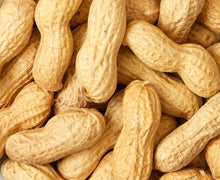
Some people assume the high fat content in peanuts makes them bad for your heart but a new study shows peanuts can actually be beneficial for the cardiovascular system. Researchers at the University of Barcelona found adding peanuts or peanut butter to the diet of young, healthy people had a positive effect on vascular health.
This study was conducted by Rosa M. Lamuela, a professor at the Faculty of Pharmacy and Food Sciences of the University of Barcelona and it differed from many other studies in that it focused on the effects of dietary changes for healthy subjects. "In this study group, it is more difficult to see any effect of dietary changes on health," Lamuela said.
Most nutritional studies look at populations with an elevated risk of disease such as those who are obese or advanced in age.
The 63 participants in this study were between the ages of 18 and 33 and who were generally in good health. They included a daily portion of peanut products in their regular diet over the span of six months. The results showed improvement in vascular markers related to the antithrombotic and vasodilator effects.
"The results reveal a significant increase in urinary levels of phenolic metabolites in those young people who had eaten a daily dose of peanuts and peanut butter compared to the control group, which had eaten a cream without fiber or polyphenols," Lamuela said. "Similarly, participants who ate peanuts or peanut butter also showed improved levels of prostacyclin I2 and the ratio between thromboxane A2 and prostacyclin I2, lipid molecules (eicosanoids) which are considered markers of vascular health."
"Interestingly, some phenolic metabolites that increased significantly after the consumption of peanut products —especially hydroxycinnamic acids— also correlated with the improvement in both markers," says researcher Isabella Parilli-Moser, first author of the article.
The study reinforced the protective effects of polyphenols, which are powerful antioxidants and anti-inflammatory compounds in the diet. Previous studies have shown how peanut consumption has been linked to a lower risk of developing cardiovascular disease and diabetes because of the protective effects of the polyphenols.
"But we need more studies to fully understand the mechanisms that explain the positive effects of peanut consumption on vascular health," Lamuela said.



